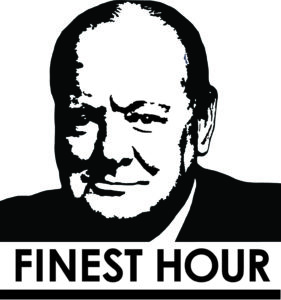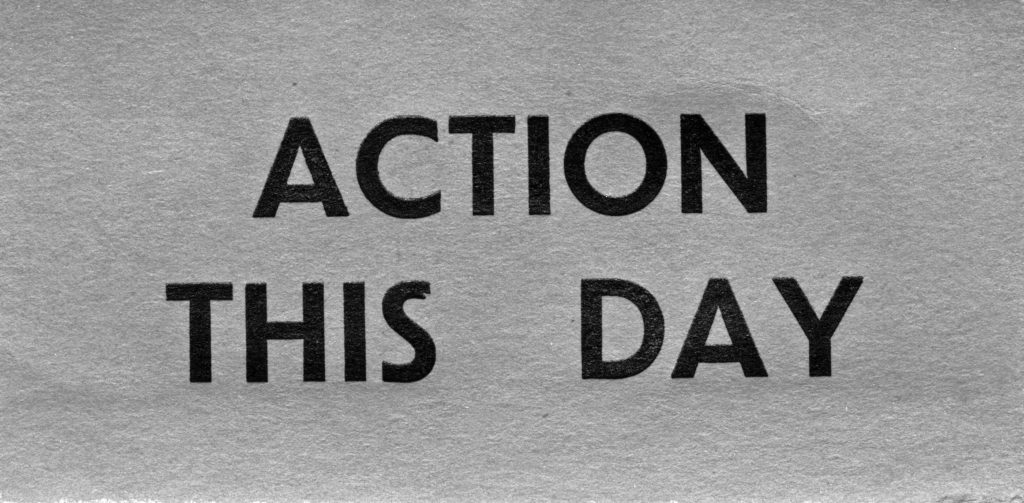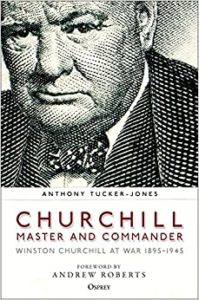
Finest Hour 195
Action This Day – Winter 1897, 1922, 1947

November 14, 2022
Finest Hour 195, First Quarter 2022
Page 44
By Michael McMenamin
125 Years Ago
Winter 1897 • Age 22
“More Like Brother and Sister”
Churchill famously wrote in his 1930 autobiography My Early Life that, after his father’s death in early 1895, “I was now in the main the master of my fortunes. My mother was always at hand to help and advise, but…she never sought to exercise parental control. Indeed she soon became an ardent ally….We worked together on even terms, more like brother and sister than mother and son. At least so it seemed to me.” His mother had died nine years earlier, so she could not directly refute the claim, but her letters to him survive and tell a much different story.
Judging from his mother’s letters, the “brother and sister” relationship certainly had not blossomed in 1897, two years after he became “in the main the master of my fortunes.” In early 1897, Winston had written his mother expressing his intention to return to England for his three-month summer leave. Unfortunately for him, his letter arrived at a time when he had overdrawn his account at Cox’s bank. His mother’s reply sounds like a parent scolding a wayward child. She began with the financial issue: “I must say I think it is too bad of you—indeed it is hardly honourable knowing as you do that you are dependent on me & that I give you the biggest allowance I possibly can, more than I can afford.”
Far from never seeking “to exercise parental control,” Jennie then lectured her son in words more resembling those of Winston’s father Lord Randolph than those of a “sister”:
As for yr wild talk & scheme of coming home for a month, it is absolutely out of the question, not only on account of money, but for the sake of yr reputation….I confess I am quite disheartened about you. You seem to have no real purpose in life & won’t realize at the age of 22 that for a man life means work, & hard work if you mean to succeed. Many men at yr age have to work for a living & support their mother. You cannot but feel ashamed of yrself under the present circumstances—I haven’t the heart to write more.

2024 International Churchill Conference
100 Years Ago
Winter 1922 • Age 47
“Winston Speaks with Great Brilliance”
At the end of December 1921, Churchill travelled to the South of France with Prime Minister David Lloyd George, who gave him the responsibility “to bring the Irish Provisional Government into being at the earliest moment.” On 8 January 1922, the day after Churchill returned from France, the Irish Parliament voted to accept the peace treaty that ended the AngloIrish War and created the Irish Free State. After Eamon de Valera’s resignation, Michael Collins became Prime Minister of the Irish Free State on 15 January. The next day Dublin Castle was handed over to the Irish government, and Churchill ordered the immediate evacuation of all British troops in the Free State.
Churchill then served as a mediator between the Free State and Northern Ireland, which remained part of the United Kingdom. As the leaders of their respective regions, Michael Collins and Sir James Craig met on 21 January in Churchill’s rooms at the Colonial Office in London. The two Irishmen reached agreement on a variety of issues, including the end of the Free State’s economic blockade of the North and the resumption of free trade between the two. Later, on 30 January, Lloyd George agreed, at Churchill’s request and over strong opposition from the War Office, to release thirteen Irish soldiers sentenced to life imprisonment for their mutiny in India in 1920. Churchill wrote to his wife on 4 February: “I am glad to have this task in my hands and hope to be able to steer a good course between all the storms and rocks.”
On 15 February, Churchill addressed the House of Commons upon the occasion of the Irish Free State bill being introduced in Parliament:
If you wish to see Ireland degenerate into a meaningless welter of lawless chaos and confusion, delay this Bill. If you wish to see increasingly serious bloodshed all along the borders of Ulster, delay this Bill. If you wish this House to have on its hands, as it has now, the responsibility for peace and order in Southern Ireland, without the means of enforcing it, if you want to impose those same evil conditions upon the Irish Provisional Government, delay this Bill.
Future prime minister Neville Chamberlain told the House that, after hearing Churchill speak, he was “more convinced than ever” that the Boundary Commission agreed to the day before by Churchill and Michael Collins would deal fairly with Northern Ireland. That night, Herbert Fisher, the President of the Board of Education, wrote in his diary, “Winston speaks with great brilliance.”
75 Years Ago
Winter 1947 • Age 72
“Death Seems Very Easy at the End of the Road”
Churchill’s joy at the marriage of his daughter Mary to Christopher Soames on 11 February was tempered twelve days later by the death of his brother Jack. In his reply to one letter of condolence, Churchill wrote:
We have always been attached to one another, & after his house was blown up in the war, he lived with me at No. 10 or the Annexe. He had no fear & little pain. Death seems very easy at the end of the road. Do you think we will be allowed to sleep a long time? I hope so….The only thing Jack worried about was England. I told him it would be all right.
During the early winter, Churchill twice addressed the Commons on issues important to him which placed him at odds with the ruling Labour party. On 12 December 1946 the subject was British policy on India. On 31 January 1947, it was Palestine.
In many ways, Churchill’s 12 December speech about India was an I-told-you-so moment. British withdrawal from India had resulted in the sectarian bloodbath that he had feared and foretold. Churchill reminded them of what his father had said in 1886, when he was Secretary of State for India: “Our rule in India is, as it were, a sheet of oil spread over a surface of, and keeping calm and quiet and unruffled by storms, an immense and profound ocean of humanity. Underneath that rule lie hidden all the memories of fallen dynasties, all the traditions of vanquished races, all the pride of insulted creeds, and it is our task, our most difficult business, to give peace, individual security and general prosperity….”
Britain had now failed in that task. While waiting to give India full independence in 1946, London had put the Congress Party of Jawaharlal Nehru in charge in Delhi. As a direct consequence, Churchill went on, there had been “a series of massacres over wide regions, unparalleled in India since the Indian Mutiny of 1857. Indeed, it is certain that more people have lost their lives or have been wounded in India by violence since the interim Government under Mr. Nehru was installed four months ago…than in the previous 90 years.…This is only a foretaste of what may come. It may be only the first few heavy drops before the thunderstorm breaks upon us. These frightful slaughters over wide regions and in obscure uncounted villages have, in the main, fallen upon Muslim minorities.…Nevertheless, I must record my own belief, which I have long held and expressed, that any attempt to establish a reign of a Hindu numerical majority in India will never be achieved without a civil war.…”
Churchill’s speech about Palestine on 31 January 1947 drew a contrast between the Labour government’s contradictory approaches to India and Palestine. The British kept 100,000 British troops to keep the peace in the small Mandate of Palestine, whereas it never had more than half that number in India. Churchill thought this to be a monumental waste of government funds which otherwise “could be allowed to fructify in the pockets of the people.” He wanted to give the responsibility for Palestine to the United Nations and bring the British troops home. As Churchill said, “We do not propose to stay in India, even if a civil war of gigantic character were to follow our departure….In Palestine, we are told we cannot go because it would lead to a terrible quarrel between Arabs and Jews….” Two weeks later, the government announced its decision to transfer the Palestine Mandate to the United Nations.
Subscribe
WANT MORE?
Get the Churchill Bulletin delivered to your inbox once a month.




